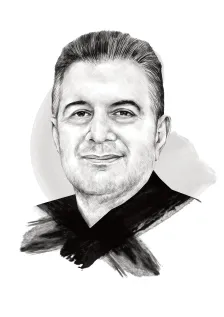Geopolitical shocks, security breaches, market volatility, tariff pressures, mounting taxes, and soaring prices are shaking our world. ‘Uncertainty’ is no longer an exception; it has become the rule guiding the policies of states and companies, unsettling the lives of us all. Social safety nets have eroded, while trust in the premises of economics, technology, and security has dissipated. ‘Gambling’ with the destinies of nations and peoples has become the defining trait.
Glaring examples of that uncertainty abound—from the genocide in Gaza to Russia’s invasion of Ukraine; from tensions over Taiwan to the crises of Sudan, Syria, Lebanon, and Iran; culminating in the recent attack on Doha and the ‘Block Everything’ protests sweeping across France. In the US, the attempted assassination of President Donald Trump and the killing of Charlie Kirk herald the slide towards civil war between an anarchic left and an extremist right. Ideological and religious polarisation play a lethal role in shaping the destinies of nations, their economies, and the daily lives of their peoples.
In economics, an endless torrent of uncertainty prevails—unconvincing financial figures, unsettling policies, and hesitant investments. According to the UN’s World Social Report 2025, more than 57% of the world’s population has lost trust in their governments. Even the most reputable economic press can’t dispense with the word ‘uncertainty,’ which has become a staple within their columns.
Manifestations of economic uncertainty are piling up: from energy shortages and the repercussions of refugee flows to confusion in trade policies and growth forecasts that fall below 2%. The World Social Report 2025 also revealed that more than half of workers worldwide fear losing their jobs within a year. The impact of AI will exacerbate this uncertainty: nearly 40% of jobs globally are expected to be disrupted, with even greater risks to advanced economies, according to IMF Managing Director Kristalina Georgieva.
Drones, debt, inflation, and climate
Since November 2022, generative AI has introduced new layers of fear and uncertainty, particularly as drones have redefined military strategy, targeting everything from forests to private homes. Rising inflation, budget deficits, and volatility in oil, gold, and rare metal prices add to this atmosphere of instability. As debts pile up—from Washington and London to developing and outright failing economies—people endure climate disasters and extreme weather swings, multiplying the risks of this age of uncertainty.




